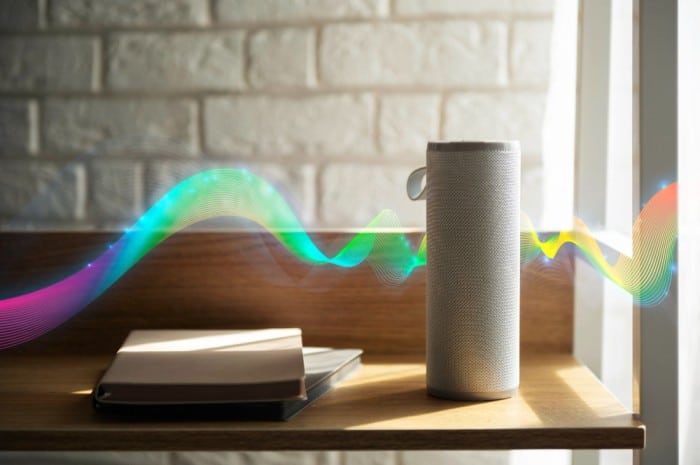What is a UV-C light air purifier?
UV-C light air purifiers, utilizing ultraviolet (UV) light technology, stand as innovative devices designed to cleanse air by channeling it through a filtration system. UV-C air purifiers kill airborne pathogens such mold, bacteria, and viruses using short-wave ultraviolet light. Their major goal is to reduce indoor air pollutants by adopting a method that differs from other purifiers in that it uses UV radiation without directly targeting airborne particles. UV-C Light Air Purifiers are available as standalone, freestanding devices or integrated systems within existing residential or commercial HVAC units. As air traverses the device, it encounters UV lamps that aim to disinfect it through germicidal irradiation. Notably, a potential safety concern is the generation of ozone during this process.
How does a UV-C light air purifier work?
The fundamental process involves directing air through a filter and subsequently exposing it to UV-C light within an internal chamber. Some models incorporate an additional filtration step before releasing the purified air back into the environment. UV-C light air purifiers are seldom standalone products, often requiring supplementary systems for optimal efficacy. Typically integrated into larger High-efficiency Particulate Arrestance (HEPA) air filtration systems, the Environmental Protection Agency (EPA) emphasizes that UV-C air purifiers may not be effective as standalone units since they cannot trap or remove particles. Thus, a comprehensive approach involving additional systems is recommended for their maximal efficiency.
Despite their efficacy in eliminating certain airborne contaminants, UV air purifiers demonstrate limitations in addressing volatile organic compounds (VOCs), which remain unaffected by their purification process. A study published in 2021 demonstrates that units that combine UV technology with a High-Efficiency Particulate Air (HEPA) filter can help eradicate microbes from the air.
Weighing the Pros and Cons of UV-C Light Air Purifier
Pros of UV-C Light Air Purifiers
Pathogen Inactivation
UV-C light air purifiers effectively neutralize and deactivate a variety of airborne pathogens, such as bacteria, viruses, and mould. This leads to a cleaner and healthier interior environment.
It Reduces Microbial Growth
UV-C light reduces the risk of respiratory infections and other health problems by focusing on microorganisms and preventing the growth and reproduction of dangerous bacteria and viruses.
It Makes Breathing Easy with Enhanced Air Quality
Through the reduction of airborne contaminants, UV-C light air purifiers may help create a more pleasant and secure living or working environment by improving indoor air quality.
Integration with HVAC Systems
These purifiers may be connected to current HVAC systems to provide a comprehensive air purification solution for the entire house or building. This provides thorough coverage and purification throughout the interior space.
Low Maintenance Of UV-C Light Air Purifiers Is a Sign of Satisfaction
In comparison to other air purification technologies, UV-C light technology typically requires less maintenance. After installation, the bulbs or lamps may require frequent replacement, although they typically have a longer lifespan.
Cons of UV-C Light Air Purifiers
It is Ineffective Against Particulate Matter
UV-C light purifiers fail to remove particulate matter from the air like dust & pet dander and even pollen. Supplemental filtration devices, such as HEPA filters may be required for complete particle removal.
UV-C light air purifiers lead to Ozone Emission
Some UV-C light air purifiers may generate ozone as a by-product during the purification process. When ozone levels are high, it can cause respiratory problems as well as other health difficulties.
It works in a Limited Range
The effectiveness of UV-C light is limited to the line of sight. Areas that are not directly exposed to the UV-C light may not receive the full benefits of purification. This limitation emphasizes the importance of proper placement for optimal results.
Initial Cost & Installation Are a Bit Expensive
UV-C light air purifier can be more expensive initially and may need professional installation, particularly if it is linked to the HVAC system. This might be a disadvantage for those searching for more affordable solutions.
Continuous Dependency on the Power Supply might be a Headache
These purifiers require a continual power supply to work. Power outages or disturbances might temporarily halt the air filtration process which will jeopardize the consistency of air quality management.
Finally, a UV-C light air purifier is quite a good solution for improving the quality of indoor air. It’s drawbacks, particularly concerning probable ozone emissions and volatile organic compounds (VOCs), should also be considered. Balancing the benefits and drawbacks is critical in making educated judgments regarding air filtration systems that meet effectiveness and health standards. If you want to buy a premium quality UV-C light air purifier at an affordable price, then Aerolube’s UV-C light air purifier is a perfect option.

